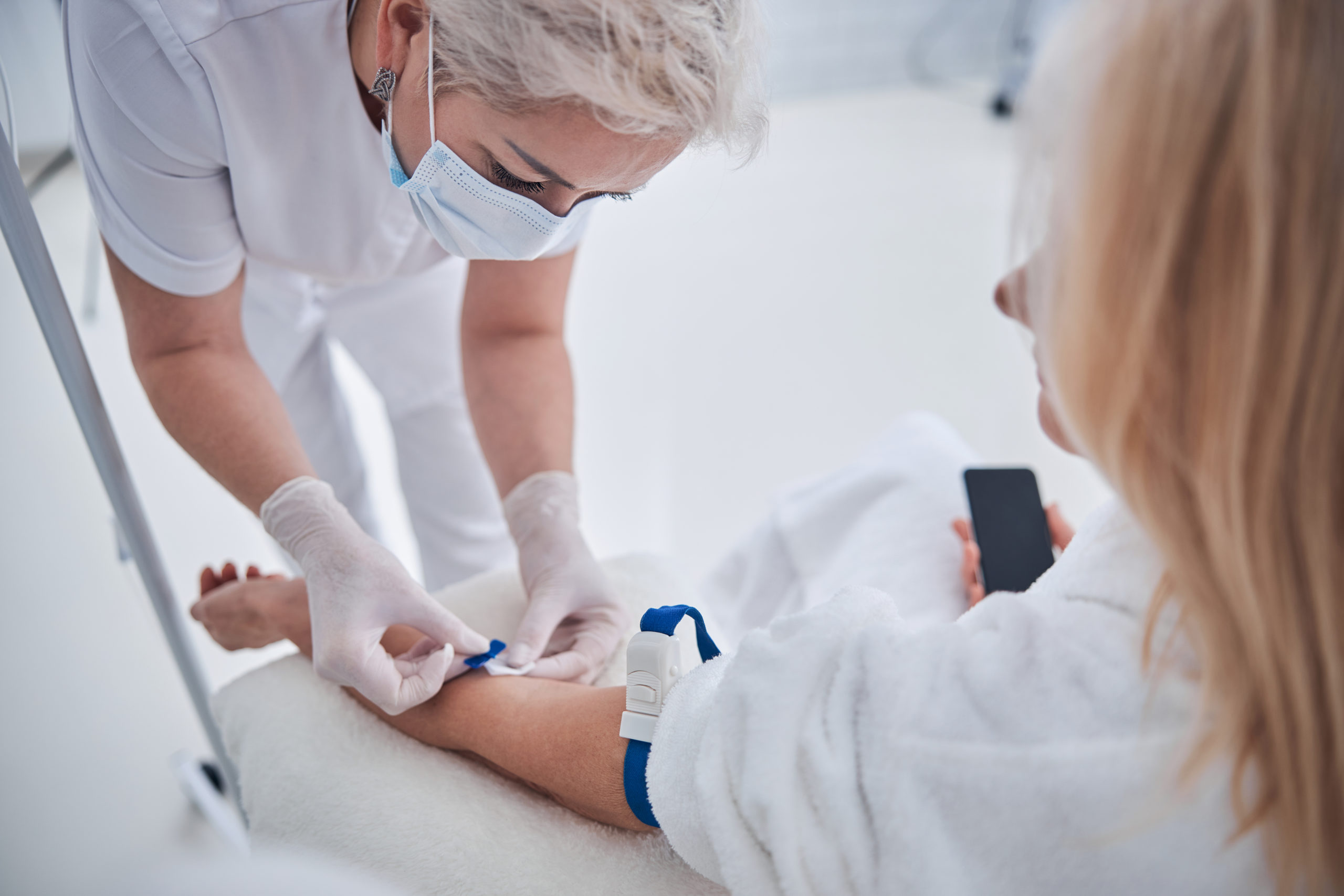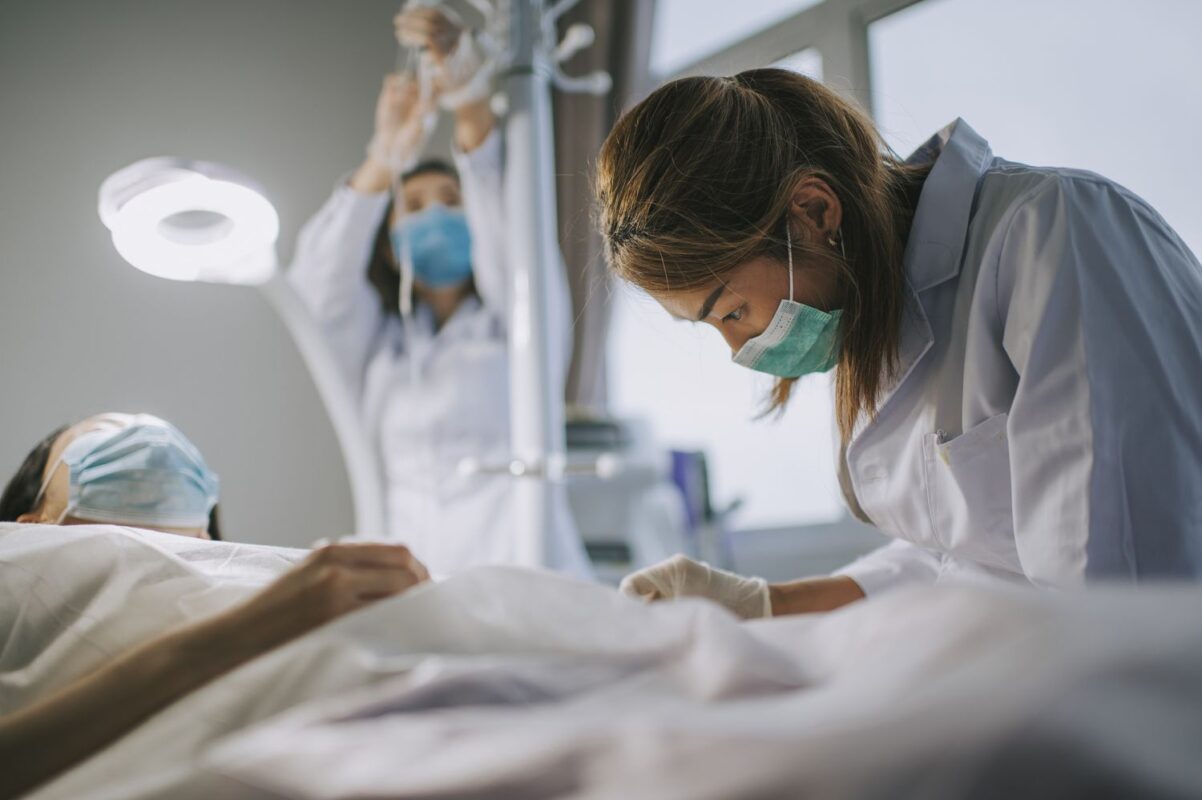It is hard and challenging to manage chronic autoimmune diseases, as they cause significant issues and problems to individuals who are experiencing them. There is a new and advanced way to treat these chronic conditions with biologic infusion.
These infusions are generally well tolerated, but they have certain distinctive qualities, such as how they are administered. There are various chronic autoimmune diseases that can be treated with Biological infusions.
In this blog, you will learn about what biological infusions are and what to expect from them:
Biologic Infusions: Overview
Genetically modified proteins called biologics, which are derived from human genes, are intended to inhibit specific immune system functions that are crucial in promoting inflammation, an essential component of many chronic diseases like rheumatoid arthritis, Crohn’s disease, and ulcerative colitis.
They differ greatly from traditional medicines in that they target particular immune system parts rather than the entire immune system as a whole. In order to lessen the symptoms that the patient experiences as a result of their chronic illness, biologic therapy is used.
Patients generally receive biological infusions in a healthcare facility or hospital. However, these infusions can be given to a patient in outpatient infusion centers sometimes.
Patients receive these medications through an intravenous (IV) needle into their veins. They are allowed to go gradually over a predetermined length of time rather than all at once.
The latest technology was used for producing these drugs. They are referred to as “biologics” because living cells, as well as proteins, carbohydrates, and DNA, can be used to create them. The term “biologics” covers a wide range of drugs, including insulin, which is frequently prescribed.
It takes a lot of biologics to inhibit your body’s immunological response. When this process is hurting you, as it is in autoimmune illnesses, where your immune system is attacking your own body, we want to stop it. With the use of this kind of biologic, we can stop and reverse the harm caused by these illnesses.

Biologic Infusion
Conditions Which Can Be Treated With Biologic Infusions
There are several illnesses for which biological infusions are used, but here we have focused on autoimmune diseases. These are:
- Psoriatic arthritis
- Rheumatoid arthritis
- Crohn’s disease
- Psoriatic arthritis
- Ulcerative colitis
- Lupus
- Multiple sclerosis
- Psoriasis
Advantages You Received from Biologic Infusions
Due to their effectiveness and generally manageable side effects, biological medicines are often used for the treatment of autoimmune conditions. If other medications used to treat your disease aren’t performing as well on their own, your doctor will often prescribe them for you.
Some of these drugs are only offered as intravenous (IV) infusions or subcutaneous (SC) injections, while others are offered in both forms. Both of these routes have advantages and disadvantages, and your doctor will usually recommend one over the other based on your preferences and insurance coverage.
You can administer injections at home. You must place the needle just beneath the skin into the “subcutaneous” tissue, most frequently in the thigh, upper arm, or stomach. They require more frequent administration because they don’t last as long as infusions do. Infusions can be a better choice for you if it’s difficult for you to administer shots to yourself.
You’ll probably need to travel for infusion therapy because it takes longer than self-administering shots at home. Nevertheless, depending on your medicine, you’ll only need to have these done every one to two months or so. You won’t have to worry about packing your medication if you frequently travel for business or pleasure.
Medications Available Through Biologic Infusion
There are numerous biologic medications that are available for infusion, and in the coming days, we expect that we can have more medicines manufactured and approved by FDA. There are three medications for infusion which are:
- Entyvio – This medicine is used for treating Crohn’s disease and ulcerative colitis.
- Remicade – This medicine is used for treating ankylosing spondylitis, psoriatic arthritis, plaque psoriasis, Crohn’s disease, ulcerative colitis, and rheumatoid arthritis.
- Tysabri – This medicine is used to treat Crohn’s disease and multiple sclerosis.
How Should I Get Ready For My First Appointment For A Biologic Infusion?
Your visit will probably be different from those you’ve previously had if you’re going to an infusion center. A nurse will insert an IV needle and thin tube into your vein when you arrive. Your nurse will begin the infusion as soon as the IV has been successfully inserted, and the medication will flow down the small tube and into your vein.
Before your appointment for biologic infusion therapy, it’s ideal to drink a lot of water as this can make it simpler for your nurse to put the needle. Wearing loose, comfortable clothing that allows you to easily reach your arms also helps the infusion setup procedure go more smoothly.
It’s crucial to check that you are not sick before going to your appointment. This is done both for your own protection and to keep others at the infusion center from contracting an infection.
The majority of biological medications compromise your immune system, so if you already have an infection developing, your infusion may worsen it.
What Should You Expect During a Biologic Infusion?
Although the duration of a biological infusion varies, you should plan to sit for at least 30 minutes. Therefore, you should pack something to pass the time, such as a book or magazine.
If you plan to listen to anything on your device during your infusion, make sure it is charged and bring headphones. Here, we have listed what you should expect during the biological infusion in each of the three medications:
- If you are receiving the Remicade infusion treatment, these infusions last for two hours. Your healthcare professional will monitor your heart rate and blood pressure before starting the treatment.
- The Entyvio infusion lasts for about 30 minutes. Your healthcare monitor will constantly monitor you for any allergic reaction or side effects.
- In the Tysabri infusion treatment, the procedure lasts for 2 hours. One hour is for the actual infusion treatment, and another hour is for monitoring the patient after infusion.

Biologic Infusion
What Should You Know After Received an Infusion?
Your doctor will probably want to keep an eye on you after your initial infusion for a particular amount of time, typically between 15 and 60 minutes, to look for any symptoms of an allergic reaction (such as swollen lips, wheezing, or rashes).
Additionally, you should also be informed who to contact if you experience any issues after leaving the infusion facility.
It is frequent to have headaches after infusion. They are often brought on by changes in your body’s fluid balance. These are temporary and should disappear in a day.
Your risk of receiving an infection increases after any kind of infusion, which weakens your immune system. If you experience a fever or other infection-related symptoms, you should have a plan with your healthcare practitioner regarding who to call.
Each biological infusion is distinct from the others and has its own special side effects. Before your first infusion, go over these with your doctor so you’ll know what to expect.
And last, it can take weeks or even months for your condition to improve. It is uncommon for symptoms to improve quickly. Prior to your infusion beginning to provide relief, discuss with your healthcare provider the best way to manage your symptoms.
Frequently Asked Questions
What are some biological infusion drugs?
Biologics come in four distinct types, each of which has a different inflammatory target and different risks and advantages. These include adalimumab (Humira), certolizumab pegol (Cimzia), etanercept (Enbrel), golimumab (Simponi, Simponi Aria), and infliximab (Remicade), which are also known as TNF blockers or anti-TNFs.
What is biologics used for?
There is a variety of diseases that biologics treat, and these include Multiple Sclerosis, psoriasis, rheumatoid arthritis (RA), and inflammatory bowel illnesses, including Crohn’s disease. These medications are injected or infused directly into a vein.
Contact Fuse Infusion for Biologic Infusion
A new and advanced method of treating various chronic conditions, such as autoimmune disorders, is biologic infusions. While receiving an infusion may initially seem a little frightening, there are steps you can do to make the process simple.
One of the top infusion centers working in the US is Fuse Infusion. For the treatment of various chronic diseases, we offer biologic infusion. The patient will return to their regular life after this treatment.
Our team members are highly qualified and experienced, and they will support you throughout your therapy. To learn more, contact us at 914 460 4891 right away!

